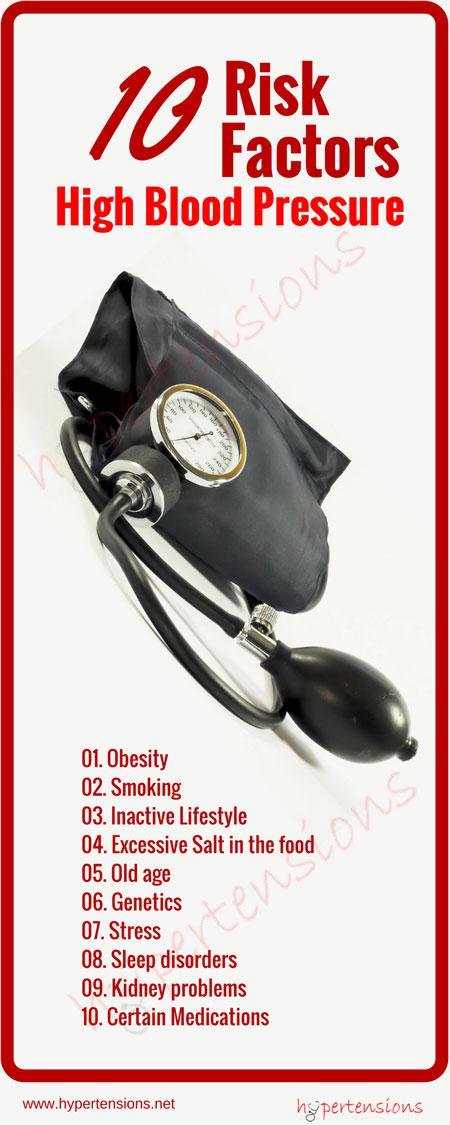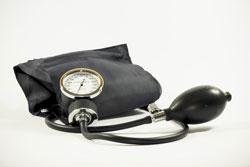High blood pressure, also known as hypertension, is a serious health condition that often goes unnoticed but can silently damage your body for years if left untreated. It occurs when the force of blood pushing against your artery walls is consistently high.
This can lead to a variety of health problems, including heart disease, stroke, kidney failure, and even vision problems. This article explores the causes and symptoms of high blood pressure, empowering you to take control of your heart health. Learn how to identify risk factors, implement natural lifestyle changes, and seek proper treatment if needed.
Understanding Your Blood Pressure Readings
Blood pressure is measured in two numbers: systolic and diastolic.
- Systolic pressure: This is the pressure when your heart contracts and pushes blood throughout your body.
- Diastolic pressure: This is the pressure when your heart relaxes between beats.
Normal blood pressure is generally considered to be below 120/80 millimeters of mercury (mmHg). If your blood pressure readings are consistently elevated, it's important to see a doctor to determine the best course of action.
Causes of High Blood Pressure
While the exact cause of high blood pressure (essential hypertension) remains unknown in many cases, several factors can increase your risk of developing it:

- Obesity: Carrying excess weight puts a strain on your heart, making it work harder to pump blood (1).
- Smoking: Smoking damages your blood vessels and increases your risk of developing hypertension(2).
- Inactive Lifestyle: Regular physical activity helps keep your blood pressure in check. Aim for at least 30 minutes of moderate-intensity exercise most days of the week.
- Unhealthy Diet: A diet high in sodium (salt), saturated fat, and processed foods can contribute to high blood pressure (3). Focus on a balanced diet rich in fruits, vegetables, and whole grains.
- Age: As you age, your arteries naturally become less flexible, which can lead to higher blood pressure.
- Genetics: If you have a family history of high blood pressure, you're more likely to develop it yourself.
- Stress: Can stress cause high blood pressure?Absolutely! Chronic stress can cause temporary spikes in blood pressure (4). Learning healthy stress management techniques is important.
- Sleep Disorders: Getting enough quality sleep is essential for overall health, including blood pressure regulation.
- Kidney Problems: It is interesting, high blood pressure can cause kidney problems and kidney diseases can cause high blood pressure. So, ensure that your kidneys are functioning well.
- Certain Medications: What medications cause high blood pressure? Some medications can raise blood pressure as a side effect. Talk to your doctor if you're concerned.

Symptoms of High Blood Pressure
High blood pressure often has no noticeable symptoms in its early stages. This is why it's so important to get regular checkups, especially if you belong to any of the high-risk groups. Early detection and treatment can help prevent serious health complications down the road.
Maintaining a Healthy Lifestyle for Blood Pressure
Here's the good news: high blood pressure can often be controlled by making some simple changes to your daily routine! These lifestyle changes promote overall heart health and can significantly lower your blood pressure readings. Let's break down each tip:
-
Maintain a healthy weight: Carrying excess weight puts extra strain on your heart, making it work harder to pump blood. Aim for a healthy weight based on your Body Mass Index (BMI) or consult your doctor for personalized guidance.
-
Eat a balanced diet low in sodium and saturated fat:
- Sodium:This is the main culprit in table salt. Focus on reducing processed foods, canned goods, and restaurant meals, which are often loaded with sodium. Opt for fresh ingredients and cook more at home to control your salt intake.
- Saturated Fat:Found in fatty meats, fried foods, and some dairy products, saturated fat can increase bad cholesterol levels and contribute to high blood pressure. Choose lean protein sources like fish, chicken, or beans, and limit fried foods.
- For best foods for high blood pressure:Consult a doctor or registered dietician. They can create a personalized meal plan rich in fruits, vegetables, and whole grains, all excellent for heart and blood pressure health.
-
Exercise regularly: Aim for at least 30 minutes of moderate-intensity exercise most days of the week. Brisk walking, swimming, cycling, or dancing are all great options. Regular physical activity helps your heart become stronger and more efficient at pumping blood, naturally lowering your blood pressure.
-
Manage stress effectively: Chronic stress can cause temporary spikes in blood pressure. Find healthy ways to manage stress, such as yoga, meditation, deep breathing exercises, or spending time in nature.
-
Limit alcohol consumption: Excessive alcohol consumption can raise your blood pressure. Talk to your doctor about a healthy limit for alcohol intake.
-
Don't smoke: Smoking damages your blood vessels and increases your risk of developing high blood pressure. Quitting smoking is one of the best things you can do for your overall health.
-
Get enough sleep: When you don't get enough sleep, your body releases stress hormones that can elevate your blood pressure. Aim for 7-8 hours of quality sleep each night.
-
Work with your doctor to develop a treatment plan if needed: If lifestyle changes alone aren't enough to control your blood pressure, your doctor may prescribe medication. It's crucial to work with your doctor to develop a personalized treatment plan that's right for you.
By incorporating these healthy habits into your daily life, you can take significant steps towards lowering your blood pressure and improving your heart health!
Living With High Blood Pressure
If you've been diagnosed with high blood pressure, there are additional resources available to help you manage the condition. Here are some questions you might have:
- How to lower blood pressure naturally:There are several natural ways to help lower blood pressure, such as reducing stress, eating a healthy diet, and exercising regularly. However, it's important to discuss these methods with your doctor first.
- High blood pressure during pregnancy:High blood pressure can be a concern during pregnancy. If you're pregnant and have high blood pressure, be sure to work closely with your doctor to monitor your health and the health of your baby.
- Is high blood pressure hereditary?Yes, genetics can play a role in high blood pressure risk. If you have a family history of the condition, talk to your doctor about ways to manage your risk.
- How to check blood pressure at home:With proper instruction from your doctor, you can monitor your blood pressure at home using a home blood pressure monitor. This can be a helpful tool for tracking your progress and managing your condition.
- Differences between systolic and diastolic pressure:As mentioned earlier, blood pressure is measured with two numbers. This article explained thedifferences between systolic and diastolic pressure.
- What to do for high blood pressure emergency:In a high blood pressure emergency, where readings are extremely high and accompanied by severe headaches, shortness of breath, or vision changes, seek immediate medical attention.
By making these changes and getting regular checkups, you can take charge of your blood pressure and live a long, healthy life.

